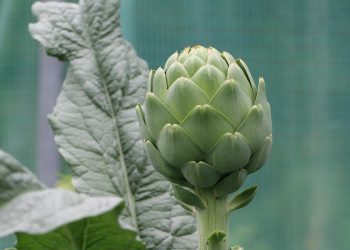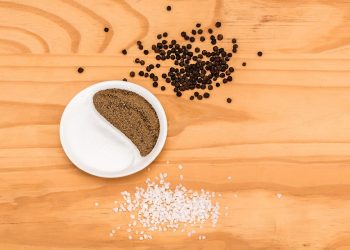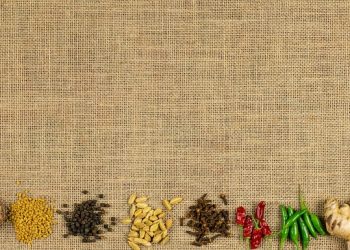Have you ever wondered how a single spice can transform your meals and support your gut health? Enter cardamom, a fragrant spice known for its unique flavor and potential health benefits. While it’s often overshadowed by more common spices like cinnamon or pepper, cardamom deserves a spotlight, especially when it comes to gut balance. Research suggests that cardamom may help improve digestion and reduce bloating, making it a valuable addition to your diet. In this article, I’ll share five delicious recipes that incorporate cardamom, each designed to promote gut health while tantalizing your taste buds.
Contents
Why Cardamom?
Before diving into the recipes, let’s chat a bit about why cardamom is so special. Native to India, cardamom is often referred to as the “queen of spices.” It’s not just its aromatic properties that make it stand out; studies have shown that cardamom may have antimicrobial and anti-inflammatory effects, which are crucial for maintaining a balanced gut microbiome (Bhat et al., 2017). Plus, it can add a warm, sweet, and slightly spicy flavor to both sweet and savory dishes.
So, whether you’re looking to soothe an upset stomach or simply want to spice up your meals, here are five recipes that highlight cardamom and its gut-friendly benefits.
1. Cardamom-Spiced Oatmeal
Ingredients:
- 1 cup rolled oats
- 2 cups water or milk (dairy or plant-based)
- 1 teaspoon ground cardamom
- 1 tablespoon honey or maple syrup
- A pinch of salt
- Fresh fruits (like bananas or berries) for topping
- Nuts or seeds for crunch
Instructions:
- In a pot, bring the water or milk to a boil.
- Add the rolled oats, cardamom, honey, and salt.
- Reduce the heat and let it simmer for about 5 minutes, stirring occasionally.
- Serve hot, topped with fresh fruits and a sprinkle of nuts or seeds.
Why It’s Good for Your Gut:
Oats are rich in soluble fiber, which promotes healthy digestion. Adding cardamom enhances the flavor and may help reduce bloating. Plus, the natural sweetness from fruits keeps it healthy without the need for refined sugars.
2. Cardamom and Ginger Tea
Ingredients:
- 1 teaspoon cardamom pods (crushed)
- 1 teaspoon fresh ginger (sliced)
- 2 cups water
- Honey to taste
- A splash of lemon juice (optional)
Instructions:
- In a saucepan, bring the water to a boil.
- Add the crushed cardamom and ginger slices, then reduce the heat and let it steep for about 10 minutes.
- Strain the tea into a cup, add honey and lemon juice if desired, and enjoy!
Why It’s Good for Your Gut:
Both ginger and cardamom are known for their digestive properties. Ginger can help alleviate nausea and improve overall digestion, while cardamom may reduce gas and bloating. This tea is perfect for sipping after a heavy meal.
3. Cardamom-Infused Quinoa Salad
Ingredients:
- 1 cup quinoa (rinsed)
- 2 cups water or vegetable broth
- 1 teaspoon ground cardamom
- 1 cucumber (diced)
- 1 bell pepper (diced)
- 1 cup cherry tomatoes (halved)
- ¼ cup fresh parsley (chopped)
- Juice of 1 lemon
- Olive oil, salt, and pepper to taste
Instructions:
- In a pot, bring the water or broth to a boil. Add the quinoa and cardamom.
- Reduce heat, cover, and simmer for about 15 minutes or until the quinoa is fluffy.
- In a large bowl, combine the cooked quinoa with the diced vegetables and parsley.
- Drizzle with lemon juice, olive oil, salt, and pepper. Toss to combine.
Why It’s Good for Your Gut:
Quinoa is a complete protein and rich in fiber, making it a fantastic base for a healthy salad. The addition of cardamom not only elevates the flavor but also may help with digestion due to its anti-inflammatory properties.
4. Cardamom-Infused Coconut Yogurt
Ingredients:
- 1 can (13.5 oz) full-fat coconut milk
- 1 tablespoon probiotic powder (or a probiotic yogurt starter)
- 1 teaspoon ground cardamom
- Sweetener to taste (like honey or agave syrup)
Instructions:
- In a clean jar, combine the coconut milk and probiotic powder.
- Stir in the cardamom and sweetener.
- Cover the jar with a cloth and let it sit in a warm place for 24-48 hours to ferment.
- Once fermented, refrigerate and enjoy as a delicious yogurt alternative!
Why It’s Good for Your Gut:
Coconut milk is naturally dairy-free and rich in healthy fats, while the probiotics contribute to a healthy gut microbiome. Cardamom adds a unique flavor profile that makes this yogurt stand out.
5. Cardamom-Spiced Lentil Soup
Ingredients:
- 1 cup lentils (any variety)
- 4 cups vegetable broth
- 1 onion (chopped)
- 2 garlic cloves (minced)
- 1 teaspoon ground cardamom
- 1 teaspoon cumin
- 1 carrot (diced)
- Salt and pepper to taste
- Fresh cilantro for garnish
Instructions:
- In a large pot, sauté the onion and garlic until translucent.
- Add the carrot, lentils, vegetable broth, cardamom, and cumin. Bring to a boil.
- Reduce heat and let it simmer for about 30 minutes, or until the lentils are tender.
- Season with salt and pepper, and garnish with fresh cilantro before serving.
Why It’s Good for Your Gut:
Lentils are packed with fiber and protein, aiding in digestion and satiety. The spices, including cardamom, not only enhance the flavor but also may help reduce inflammation in the gut.
FAQs
1. What are the health benefits of cardamom?
Cardamom is known for its potential anti-inflammatory and antimicrobial properties. It may help with digestion, reduce bloating, and even improve oral health.
2. Can I use cardamom in sweet dishes only?
Not at all! Cardamom is versatile and works well in both sweet and savory dishes, from oatmeal to curries.
3. How can I incorporate more cardamom into my diet?
You can add ground cardamom to smoothies, baked goods, teas, or even savory dishes like stews and marinades.
4. Is cardamom safe for everyone?
While cardamom is generally safe for most people, some may experience allergic reactions. Always consult with a healthcare provider if you’re unsure.
Conclusion
Incorporating cardamom into your meals not only adds a delightful flavor but also offers potential health benefits, particularly for gut balance. Whether you’re stirring it into your morning oats or brewing a soothing tea, cardamom can easily find a place in your kitchen. So why not give these recipes a try? Your taste buds and your gut will thank you!
Disclaimer: This article is for educational purposes only and is not a substitute for professional medical advice. Always consult a qualified healthcare provider before making changes to your health routine.
References
- Bhat, R., et al. (2017). “Phytochemistry and pharmacology of cardamom.” Journal of Ethnopharmacology. https://doi.org/10.1016/j.jep.2017.03.022
- Mayo Clinic. (n.d.). “Gut health: A guide to improving digestion.” Retrieved from https://www.mayoclinic.org
- Harvard Health Publishing. (n.d.). “The benefits of fiber for gut health.” Retrieved from https://www.health.harvard.edu
- National Institutes of Health. (n.d.). “Gut microbiome and health.” Retrieved from https://www.nih.gov
Get Your FREE Natural Health Guide!
Subscribe now and receive our exclusive ebook packed with natural health tips, practical wellness advice, and easy lifestyle changes — delivered straight to your inbox.














